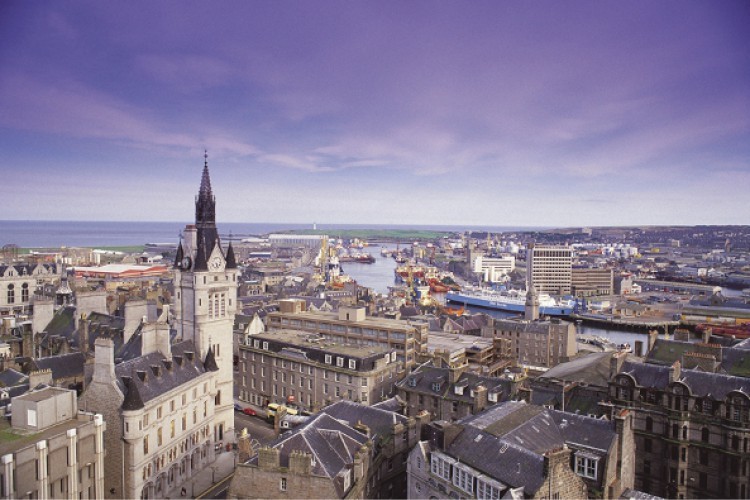
A leading Scottish economist has said the greater exposure to the “economic fallout” of the Covid-19 crisis suffered by Aberdeen and wider north-east, compared with other parts of the country, must not be forgotten in post-pandemic rebuilding efforts.
The warning, from Stuart McIntyre, head of research at Strathclyde University’s Fraser of Allander Institute, came as new figures showed a slight drop in the number of people in work across Scotland in the last quarter.
The Office for National Statistics said the employment rate among those aged 16 to 64 was 73.7% between October and December last year, 0.3% down on the previous quarter.
The unemployment rate estimate in that age group also fell slightly over the quarter to 4.5%, a drop of 0.1%. This was in contrast to the UK unemployment rate which rose to 5.1%, up 0.4% on the previous three months.
There were 2.637 million people aged 16 and over in employment in Scotland, while 123,000 were unemployed, figures for October to December showed.
Mr McIntyre said: “First, and most immediately, with over 280,000 jobs still furloughed in Scotland at the end of 2020 the manner and pace at which the furlough scheme is wound down is going to be key.
“Second, the timing and pace of economic recovery is tightly bound to the easing of public health restrictions.
“Third, some parts of Scotland have faced much greater exposure to the economic fallout from the pandemic. In particular the north-east of Scotland and the Highlands and Islands.
“This cannot be forgotten when we begin the necessary work of rebuilding our economy.”
He added: “It’s been an exceptionally challenging period for the economy of the north-east – not only is it facing the effect of the downturn in the oil and gas sector, but the economic hit from the pandemic.
“This has led to falls in payroll employment that are nearly twice that of Scotland as a whole.
“It is also reflected in the number of people claiming unemployment related benefits, which is up 136% in Aberdeen city and 123% in Aberdeenshire on last year, compared to 84% in Scotland as a whole.
“With the oil price rebounding a little in recent months, and investment to diversify activity in the sector, there is some hope that some of this ground can be regained.
“However we should not underestimate the challenges that remain.
“The UK budget next week may well include new measures from the chancellor to help the energy sector, but regardless it is clear that we need a new economic strategy from the UK and Scottish Government to support the north-east.”
Mr McIntyre said the economy of the Highlands and Islands had been badly affected by the downturn in the tourism industry through the pandemic.
He continued: “Payroll employment over the summer was down nearly 5% on the year before. In this hugely seasonal industry it is unclear whether restrictions will be eased soon enough to enable the sector to have a summer season in 2021.
“We can see that the pandemic has exacerbated existing demographic pressures and skill shortages in our remote and rural communities.
“Tackling these long-standing issues will be key to the longer term economic resilience of these communities.”